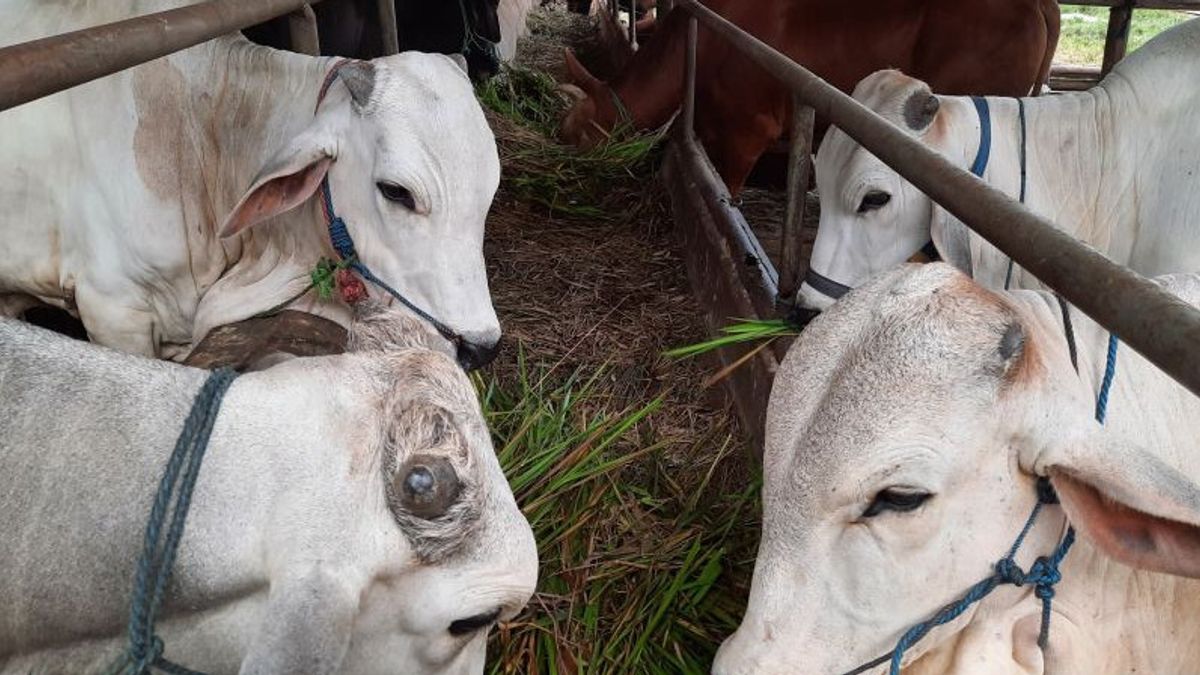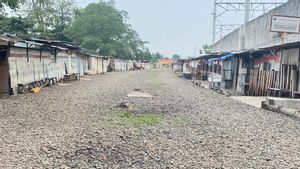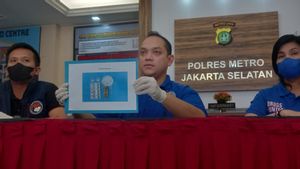JAKARTA - The Department of Agriculture and Food Security (DPKP) of Tangerang Regency, Banten said the recovery rate of livestock affected by foot and mouth disease (FMD) in the area has reached 80 percent of a total of 502 cases.
"Of the total cases of livestock infected with FMD, 502 cases. Currently, 80 percent or around 400 animals have been declared cured," said Head of the Tangerang Regency Agriculture and Food Security Agency, Asep Jatnika, quoting Antara, Tuesday, June 28.
He said that since the discovery of cases of livestock infected with FMD in the Tangerang Regency area on Saturday, June 25, his party immediately handled it by quarantine and giving medicine and vitamins to sick animals.
In addition, all captive cages and animal nurseries are also routinely sterilized or sprayed using disinfectants to prevent the further spread of the FMD virus.
In addition, said Asep, from the efforts to handle quarantine and treatment that he has done. Now there is about a hundred more livestock that is suspected of being affected by FMD, which are still in the recovery process, for that the community and breeders should not be too worried.
"We urge the public to be able to report if an animal with suspected FMD is found in their livestock, while there is still time for us to give treatment and later can be when the sacrifice is really healthy," he said.
VOIR éGALEMENT:
He added that the Tangerang Regency Government, Banten Province currently has received 600 doses of FMD vaccine given to split-hoofed livestock with healthy conditions. This was done to effectively suppress the spread of animal diseases.
"And now we have received 600 doses of FMD vaccine from the center, which is used as the first stage of the first vaccine for animals," he added.
He conveyed that the implementation of FMD vaccination in livestock in Tangerang Regency was carried out in three stages, namely the first, second, and booster injections or the third stage.
Then, for livestock that has been subjected to a medical examination and is of sufficient age, a certificate will be issued as a sign that the animal is healthy and fit for consumption.
"Obviously, for the need for vaccine doses, we really need a lot. Because from the population data alone there are 58,000, so about 60 percent of the vaccine dose needs we need," said Asep.
The English, Chinese, Japanese, Arabic, and French versions are automatically generated by the AI. So there may still be inaccuracies in translating, please always see Indonesian as our main language. (system supported by DigitalSiber.id)











